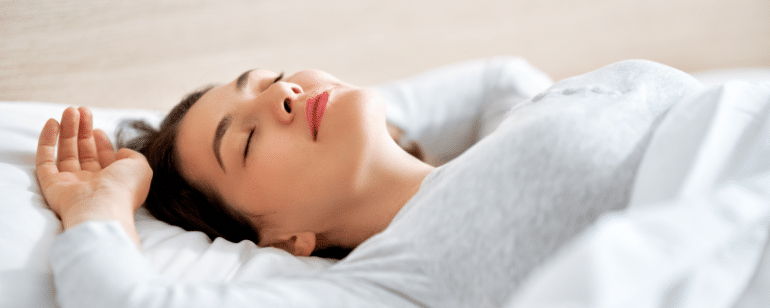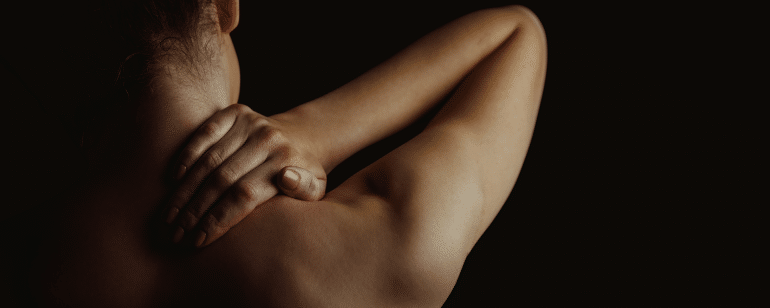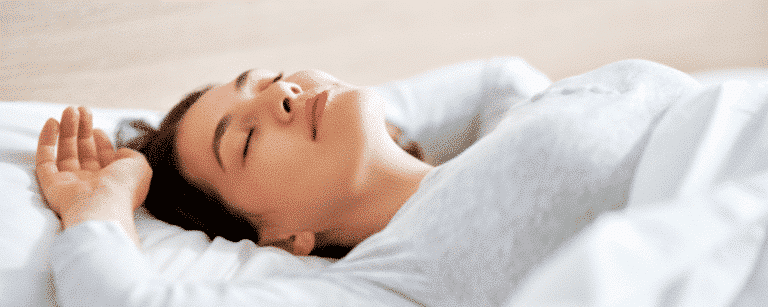During sleep, the body is in a state of rest, in which it can ideally relax and regenerate. This recovery phase is essential for the health of body and mind and contributes to the general well-being of the person. If pain is felt during the day, the body comes to rest in a lying position and can – at least during sleep – relieve itself of pain. Unfortunately, this does not always apply in the case of shoulder pain. Those affected know the problem all too well: after falling asleep, severe pain becomes noticeable, which can unexpectedly tear you out of sleep. No matter which position you take – whether lying on your side, on your back or on your stomach – the pain remains.

But what are the causes of night-time shoulder and neck pain and what can be done about it?
The causes of nocturnal neck and shoulder pain
There are many causes of neck and shoulder pain that require thorough examination in order to make an accurate diagnosis and find a treatment approach. Often complaints are due to tension, overstrain or poor posture, which occur in everyday life. Especially people who have to perform physically demanding work that involves regular arm movements or – in the opposite case – people who sit a lot at the computer during their office work and move their bodies too little often complain of tension and pain in the neck and shoulder area. In addition, the wrong sleeping equipment, for example an unsuitable mattress or a pillow that is too hard or too soft, can additionally stress the body.

Shoulder or neck pain becomes even more noticeable during sleep, because the arm is in a relaxed position in which no pain compensation can take place. This sounds paradoxical, but is easy to explain: During the day the arm hangs down – especially in the standing position. The weight stretches the deltoid muscle, which stabilizes and moves the shoulder joint, so that the head of humerus is pulled away from the acromion. The space between the humeral head and the acromion remains large and there is no friction. In the supine position, if the deltoid muscle is not strong enough, it is no longer stretched greatly and the space between the head of humerus and acromion is reduced. The head of humerus bumps roughly against the acromion, which can cause severe pain. In the gap between the head of humerus and the acromion are the bursa and the tendons that stabilise the shoulder muscles. If the space is narrowed, the tendons and the bursa become additionally irritated, which can lead to inflammation. These can be reduced if the shoulder is moved during the day. In this way, it is supplied with synovial fluid and blood, in which inflammatory messenger substances are transported away. In the resting phase, i.e. during sleep, weak muscles lead to reduced blood circulation so that the inflammatory messenger substances can settle in the shoulder. If an inflammation of the shoulder joint occurs as a result, this leads to severe pain, which can be felt both during the day and especially at night.
How to treat nightly shoulder pain
Since night shoulder pain is in many cases due to overloading of the arm muscles, certain patterns of movement of the arm in everyday life should be reduced. At the same time, the muscles that stabilize the upper arm should be specifically stabilized and strengthened in order to expand the space between the acromion and the head of humerus. In this way, “bumping into each other” can be prevented and pain is avoided. Physiotherapy for example can not only reduce postural weaknesses, but also strengthen the neck and shoulder muscles for more stability in general. In addition, loosening massage techniques can loosen tense muscles and promote blood circulation. In this way, congested cell tissue and inflammatory messenger substances can be removed, which can significantly reduce the risk of inflammation.

Which treatment approaches and combinations are ultimately most suitable can be determined after a thorough physical examination by the physiotherapist. While the cause of some pain can be eliminated by strengthening the affected muscles, in other cases it is more important to relax tense areas by using massage techniques. At the same time, certain pressure, grip or stretching techniques can be used to stimulate the blood circulation in order to remove inflammatory messenger substances and free the body from congestion.
Once a healthy balance is established, the body can enjoy relaxed nights and a healthy everyday life without pain.
